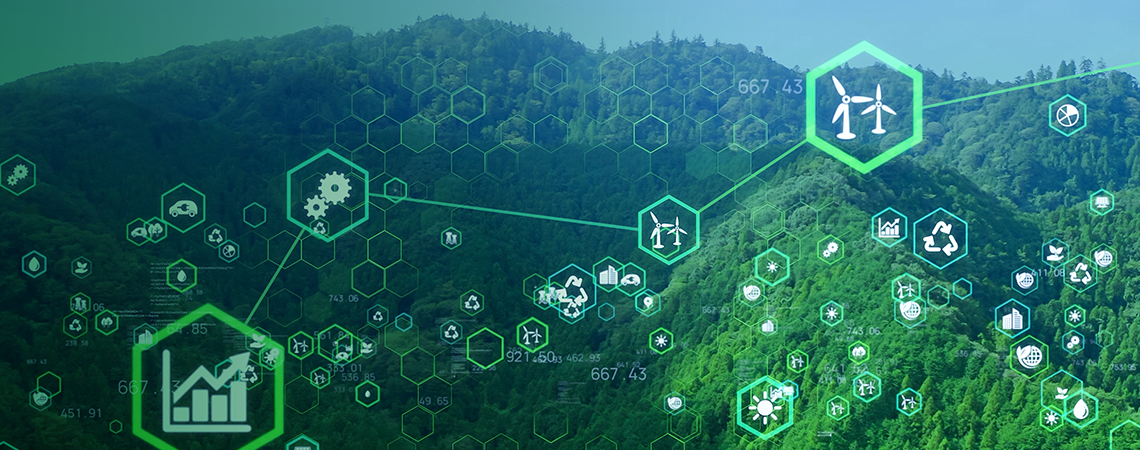Don’t stop here
There’s much more to discover!

From smart homes to smart grids, discover how digital technologies make energy intelligent, improving efficiency and reducing waste.
To fully understand the revolution behind smart homes and smart cities, we need to take a step back and look at the key element that makes them possible: energy or more precisely, its digital evolution. The energy sector is undergoing a profound transformation: we no longer speak of a simple one-directional supply, but of a dynamic ecosystem in which distributed generation plays a key role. In this decentralized context, energy becomes “intelligent”: a continuous flow of data and power managed by technologies capable of measuring, optimizing, and aligning consumption with our daily habits. This is precisely the ground on which digital energy is born.
According to the definition developed by the Energy & Strategy Group of the Politecnico di Milano, Digital Energy is the enabling factor behind the ecosystem of smart products and services that increasingly characterize energy networks, production systems, and consumption systems.
It materializes through the synergy of different elements.
On one side, we find the distribution infrastructure, which relies on hardware and software systems for network monitoring and cloud-based data processing. On the other, technology enters directly into our homes, paving the way for smart buildings and smart homes. In this domestic context, Digital Energy translates into intelligent management: sensors that autonomously regulate heating, cooling, and lighting; peak consumption control; and predictive diagnostics for industrial facilities and large buildings. Digitalization thus becomes a concrete tool that helps us use energy more consciously and avoid waste.
Digital Energy, the foundation of the smart home, is also the cornerstone of the smart grid. Without digital control essential for monitoring production, demand, and storage virtual energy exchange (data exchange, local markets, energy-sharing platforms) would be impossible.
Digital Energy transforms the home of the prosumer a producer and advanced consumer of energy into an active node of a smarter network. The prosumer can actively participate in managing the energy of their home by matching their consumption needs with the production and storage capabilities of their system.
Here, the concept of flexibility comes into play. Borrowed from the industrial sector, it applies just as effectively to the residential domain. Photovoltaic panels, energy-storage systems, and loads become “adjustable” elements that can be managed in real time based on needs. In this way, digitalization enables optimal use of self-produced energy through advanced control logic (Demand Side Management).
This technological evolution also opens new perspectives for Renewable Energy Communities (RECs). If today the focus is on precise monitoring of shared energy to maximize benefits, tomorrow flexibility will allow these communities to evolve, becoming active partners in grid stability.
The adoption of digital technologies enables more efficient and secure energy management. Through sensors and dedicated digital platforms, it is possible to set specific automatisms to reduce waste while maintaining ideal comfort. Moreover, detailed control of energy flows makes it possible to optimize self-consumption by coordinating production and storage systems, thus reducing grid withdrawals and increasing awareness of one’s consumption patterns.
Sensors, IoT, and software form the enabling infrastructure of Digital Energy, capable of translating physical energy flows into digital information flows so-called Big Data. The natural evolution of the system builds precisely on this massive volume of data: the progressive integration of Artificial Intelligence.
Thanks to advanced analysis of historical data and real-time variables, the system’s predictive capabilities will become increasingly refined. This will not only allow monitoring of consumption but also anticipating needs and detecting early signs of potential anomalies before they develop into failures, ensuring superior operational continuity.
There’s much more to discover!
Prosumer, smart grid and digital energy: towards a flexible energy system
From managing bidirectional flows to integrating renewables, smart grids are the essential infrastructure for energy efficiency, energy communities and smart districts.
"Smart energy." The literal translation of "smart energy" is as simple as it is meaningful, as this definition implies new models of energy production and consumption—a transformation already underway that is reshaping our present. For example, our homes are beginning to use and measure energy more consciously, thanks to smart metering tools. In...